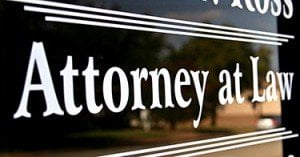Should You Hire a Private Attorney for a Parole Hearing?
Private attorneys typically have a greater understanding of the parole hearing process, better resources, and a higher level of commitment to their clients.
 private attorney for parole hearings – long beach parole lawyer
private attorney for parole hearings – long beach parole lawyer
Private attorneys also invest significantly more time and energy in clients. Although no promises or assurances can be made about the outcome of a parole hearing, it is easy to understand why these factors work in the favor of inmates who hire private attorneys.
Even if a defendant used a public defender for their criminal trial, when the time comes for a parole hearing, it is advisable to seek the services of an experienced and knowledgeable private attorney rather than a state-appointed lawyer. Private attorneys typically have a greater understanding of the parole hearing process, better resources, and a higher level of commitment to their clients. Although no promises or assurances can be made about the outcome of a parole hearing, it is easy to understand why these factors work in the favor of inmates who hire a private attorney.
The drawbacks of appointed attorneys
Not unlike a public defender, the state will appoint an attorney for a parole hearing; however, these attorneys receive very brief training in the parole hearing process from the state, not to mention modest compensation — about $400 per hearing. This amount must cover all of the time the attorney spends on the case, including:
Consulting with the inmate.
Reviewing the file, psychiatric report, 65-day packet and 10-day packet, and any other relevant documentation.
Representing the inmate at the parole hearing.
This level of compensation provides a relatively low incentive for an appointed attorney to give a case their best effort. Publicly-appointed attorneys often have large caseloads, which further contributes to the need to sharply limit how much time they invest in a given case.
Necessary topics to discuss
Because of the complexity of the parole hearing process, one meeting with a parole-seeking client prior to the hearing is woefully inadequate. However, that’s exactly what usually happens with a state-appointed attorney.
Individuals seeking parole must develop understanding of a number of important and nuanced suitability factors, including:
Insight
Remorse
Culpability
Responsibility
Victimology of the particular offense
Effectively guiding the inmate towards comprehension of these topics requires the attorney to first develop a thorough understanding of the case, and then spend time discussing each topic in depth with the inmate over several meetings.
The attorney also needs to coach the client on what to say and what to avoid saying during the parole hearing, as well as the best way to answer likely questions from the parole board.
The parole plan
One of the most crucial elements in determining parole suitability is an inmate’s parole plan. An experienced private attorney can assist the inmate with finding applicable community resources such as:
Housing
Mental health treatment
Substance abuse treatment
Employment opportunities
Other resources such as vocational training and education
A private attorney can also assist the inmate’s family and friends in composing well-written, specific, meaningful, and effective letters demonstrating their support for the inmate during parole.
Benefits of hiring a private attorney for a parole hearing
A private attorney invests significantly more time and energy in their clients. After thoroughly familiarizing myself with a client’s case, I visit my client at least three times prior to the hearing to ensure he or she is familiar with the parole hearing process, to cover potential questions from the parole board and how best to answer them, to help my client put together their proposed parole plan, and review other critical information.
I have considerable training and experience in the parole hearing process, and I work to stay up-to-date on new developments. To this end, I recently attended the state-provided training for attorneys who the state appoints to represent inmates at parole hearings. I was surprised by how brief and inadequate that training was. It only strengthened my belief that any inmate who is serious about obtaining parole is best served by hiring a qualified private attorney.










